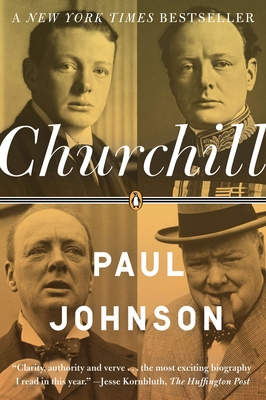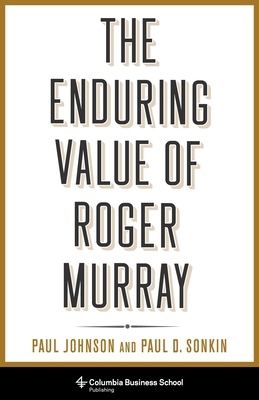


National Bestseller
A tour de force. . . . A remarkable achievement. --New York Times Book Review
A marvelous book. . . . This is history: richly textured, provocative and wise. --Plain Dealer
From acclaimed historian Paul Johnson, author of Modern Times and A History of American People, this brilliant 4000 year survey covers not only Jewish history but the impact of Jewish genius and imagination on the world.

As majestic in its scope as the country it celebrates. [Johnson's] theme is the men and women, prominent and unknown, whose energy, vision, courage and confidence shaped a great nation. It is a compelling antidote to those who regard the future with pessimism.-- Henry A. Kissinger
Paul Johnson's prize-winning classic, A History of the American People, is an in-depth portrait of the American people covering every aspect of U.S. history--from politics to the arts.
The creation of the United States of America is the greatest of all human adventures, begins Paul Johnson's remarkable work. No other national story holds such tremendous lessons, for the American people themselves and for the rest of mankind.
In A History of the American People, historian Johnson presents an in-depth portrait of American history from the first colonial settlements to the Clinton administration. This is the story of the men and women who shaped and led the nation and the ordinary people who collectively created its unique character. Littered with letters, diaries, and recorded conversations, it details the origins of their struggles for independence and nationhood, their heroic efforts and sacrifices to deal with the 'organic sin' of slavery and the preservation of the Union to its explosive economic growth and emergence as a world power. Johnson discusses contemporary topics such as the politics of racism, education, the power of the press, political correctness, the growth of litigation, and the influence of women throughout history.
Sometimes controversial and always provocative, A History of the American People is one author's challenging and unique interpretation of American history. Johnson's views of individuals, events, themes, and issues are original, critical, and in the end admiring, for he is, above all, a strong believer in the history and the destiny of the American people.


Johnson revels in all the wicked things these great thinkers have done...great fun to read. -- New York Times Book Review
A fascinating portrait of the minds that have shaped the modern world. In an intriguing series of case studies, Rousseau, Shelley, Marx, Ibsen, Tolstoy, Hemingway, Bertrand Russell, Brecht, Sartre, Edmund Wilson, Victor Gollancz, Lillian Hellman, Cyril Connolly, Norman Mailer, James Baldwin, Kenneth Tynan, and Noam Chomsky, among others, are revealed as intellectuals both brilliant and contradictory, magnetic and dangerous.


The classic world history of the events, ideas, and personalities of the twentieth century.

A galaxy of legendary figures from the annals of Western history
In this enlightening and entertaining work, Paul Johnson, the bestselling author of Intellectuals and Creators, approaches the subject of heroism with stirring examples of men and women from every age, walk of life, and corner of the planet who have inspired and transformed not only their own cultures but the entire world as well.
Heroes includes:
Samson, Judith, and Deborah - Henry V and Joan of Arc - Elizabeth I and Walter Raleigh - George Washington, the Duke of Wellington, and Lord Nelson - Emily Dickinson - Abraham Lincoln and Robert E. Lee - Mae West and Marilyn Monroe - Ronald Reagan, Margaret Thatcher, and Pope John Paul II



Johnson emphasizes the rarity of truly visionary artists . . . his approach is unfailingly generous. . . . Genuinely revealing. --Publishers Weekly
From celebrated journalist and historian Paul Johnson, an enlightening look at the imagination and drive of visionaries who have changed our world.
Paul Johnson believes that creation is a mysterious business which cannot be satisfactorily analyzed. But it can be illustrated in such a way as to bring out its salient characteristics. In this companion to his New York Times bestseller, Intellectuals, he profiles outstanding and prolific creative spirits from a variety of artistic pursuits. Here are essays on such giants as Chaucer and Shakespeare, Mark Twain and T. S. Eliot, Jane Austen and George Eliot; artists such as Dürer, Turner, and the contemporary Japanese master Hokusai; architects Pugin and Viollet-le-Duc; Johann Sebastian Bach; Louis Comfort Tiffany; clothing designers Balenciaga and Dior; and masters of the 20th century, Picasso and Disney.



By far the most important figure in the history of the United States, George Washington liberated the thirteen colonies from the superior forces of the British Empire against all military odds, and presided over the production and ratification of a constitution that (suitably amended) has lasted for more than two hundred years. Yet today Washington remains a distant figure to many Americans--a failing that acclaimed author Paul Johnson sets out to rectify with this brilliantly vivid, sharply etched portrait of the great hero as a young warrior, masterly commander in chief, patient lawmaker, and exceptionally wise president.

In this probing, challenging and personal account of his feelings about God and religion, Paul Johnson shares with others the strength and comfort of his own faith. Informed by his great knowledge of history, The Quest for God is written with force, lucidity and eloquence by the author of Intellectuals, Modern Times, A History of the Jews and other works.


(Johnson) is a master of narrative history. --Los Angeles Times Book Review
In these masterful essays drawn from his New York Times bestsellers A History of the American People and Heroes, one of the world's most renowned and respected historians explores what is arguably the most important chapter in the annals of America: the Civil War.
Enlivened with the author's trademark scholarship, verve, and intelligence, this vivid, concise history revisits the conflict that tore a nation asunder and provides portraits of the people who played essential roles in the bloody drama. Johnson's Civil War America examines the factors that led to the devastating rift in the years before the fighting--and recounts the troubled healing a wounded nation underwent in the years after the final shot was fired.

Roger Murray (1911-1998) was a crucial figure in the history of value investing. A financial professional, economist, adviser to members of Congress, and educator, Murray was the successor to the legendary Benjamin Graham as professor of the securities analysis course at Columbia Business School. There, he mentored generations of students, including Mario Gabelli, Charles Royce, Leon G. Cooperman, and Art Samberg.
This book offers a compelling account of Murray's multifaceted career alongside a series of remarkable lectures he gave late in his life that encapsulated his philosophy of investing. The investing professionals and educators Paul Johnson and Paul D. Sonkin chronicle Murray's life and accomplishments, capturing his professional triumphs, theoretical insights, and lasting legacy. They highlight Murray's educational philosophy and mentorship, including personal recollections from his students about his teaching and influence. The Enduring Value of Roger Murray features the transcripts of four lectures Murray gave in 1993, hosted by Gabelli, which became legendary in the investing community. These lectures inspired Bruce Greenwald to ask Murray to co-teach a security analysis course, leading to the resurrection of value investing education at Columbia Business School, which had waned after Murray's retirement in 1977. Annotated by Johnson and Sonkin, these lectures are now available to a wide audience for the first time. They will be illuminating and instructive for all value investing students and practitioners today.

